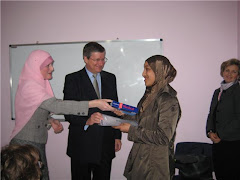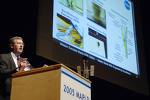

Vacancy Announcement
U.S. Embassy
Algiers, Algeria
Vacancy Announcement# 51-2009
OPEN TO: All Interested Candidates
POSITION: Medical Secretary, FSN-7*; FP-7**
OPENING DATE: December 8, 2009
CLOSING DATE: Open Until FilledWORK HOURS: Full-time; 40 hours/week
COMPENSATION: DZD 719,899* (Grade 7) *This represents the total annual compensation including salary, bonus and benefits.**Not-Ordinarily Resident (NOR); Salary to be confirmed by Washington.
NOTE: NON-ALGERIAN RESIDENT APPLICANTS MUST BE RESIDING IN COUNTRY AND HAVE THE REQUIRED WORK AND/OR RESIDENCY PERMITS TO BE ELIGIBLE FOR CONSIDERATION
The U.S. Embassy in Algeria is seeking an individual for the position of Medical Secretary in the Health Unit.
BASIC FUNCTION OF POSITION The Medical Secretary performs receptionist/administrative duties in support of the Embassy Health Unit staff. Works under the direct supervision of the Post Medical Officer. Performs Health Unit (HU) receptionist duties: answers phone, connects calls from the Health Unit Medical Officer to appropriate health professionals, directs calls from outside health professionals to the appropriate office in the mission, arranges appointments, and answers inquiries regarding the Health Unit’s services. Takes inventory of HU equipment and supplies, and reviews with the staff of the HU. Serves as receiving staff for the HU for supplies, puts away those supplies that are not “controlled” items and orders office supplies. Translates medical reports and documents in relation with Health Unit, from French to English and English to French languages. Please contact the HR Office if you wish to review a copy of the complete position description listing all duties and responsibilities of the position.
U.S. Embassy
Algiers, Algeria
Vacancy Announcement# 51-2009
OPEN TO: All Interested Candidates
POSITION: Medical Secretary, FSN-7*; FP-7**
OPENING DATE: December 8, 2009
CLOSING DATE: Open Until FilledWORK HOURS: Full-time; 40 hours/week
COMPENSATION: DZD 719,899* (Grade 7) *This represents the total annual compensation including salary, bonus and benefits.**Not-Ordinarily Resident (NOR); Salary to be confirmed by Washington.
NOTE: NON-ALGERIAN RESIDENT APPLICANTS MUST BE RESIDING IN COUNTRY AND HAVE THE REQUIRED WORK AND/OR RESIDENCY PERMITS TO BE ELIGIBLE FOR CONSIDERATION
The U.S. Embassy in Algeria is seeking an individual for the position of Medical Secretary in the Health Unit.
BASIC FUNCTION OF POSITION The Medical Secretary performs receptionist/administrative duties in support of the Embassy Health Unit staff. Works under the direct supervision of the Post Medical Officer. Performs Health Unit (HU) receptionist duties: answers phone, connects calls from the Health Unit Medical Officer to appropriate health professionals, directs calls from outside health professionals to the appropriate office in the mission, arranges appointments, and answers inquiries regarding the Health Unit’s services. Takes inventory of HU equipment and supplies, and reviews with the staff of the HU. Serves as receiving staff for the HU for supplies, puts away those supplies that are not “controlled” items and orders office supplies. Translates medical reports and documents in relation with Health Unit, from French to English and English to French languages. Please contact the HR Office if you wish to review a copy of the complete position description listing all duties and responsibilities of the position.
QUALIFICATIONS REQUIRED All applicants must address each selection criterion detailed below with specific and comprehensive information supporting each item.
1. Required Education: Two years of university is required. Nursing or Medical education is desirable
2. Prior Work Experience: Two years of office secretarial experience is required. Knowledge of medical secretary field is desirable
3. Language Proficiency: Level 4 English and French, level 3 Arabic are required
4. Other criteria: Excellent English grammar and spelling. Familiarity with medical terminology. Knowledge of general office procedures and computers is essential.
5. Other Skills and Abilities: Good interpersonal and communication skills; ability to interface with many people, both in person and on the phone. Must be organized, be tactful and understand patient confidentiality. Must be able to translate French medical documents to English.
ADDITIONAL SELECTION CRITERIA 1. Management will consider nepotism/conflict of interest and budgetary restrictions in determining successful candidacy.2. Current employees serving a probationary period are NOT eligible to apply.3. EFMs who currently hold an FMA appointment are ineligible to apply for advertised positions within the first 90 calendar days of that appointment.
SELECTION PROCESS Eligible Family Members and U.S. Veterans will be given preference when considered equally qualified for Embassy Vacancy Announcements. Therefore it is essential that the candidates address the required qualifications as specified in the application.
TO APPLY Interested applicants for this position must submit (1) and (2) below: 1. Preliminary Documentation* Current Resume. A current resume or curriculum vitae that provide the same information as an OF-612.* Letter of Interest. You must attach to the letter:o References: Be ready to provide contact information (i.e. name, address, phone number, email address) for three (3) current and/or previous supervisors.o Indication as to whether you are currently employed with the embassy; and whether you have a relative currently working within the Mission. If so, provide their contact information (i.e. name, address, phone number, email address).2. Proof of education.* Copies of relevant diplomas or degrees (as required) by the position.* Any other documentation that addresses the qualification requirements of the position as listed above. Applicants should make sure to send copies of their documents and not originals as we cannot ensure return of originals.Interested applicants may choose to submit the below application form with the package detailed in (1) and (2). Alternatively they can wait to do so until required in the hiring process. Unsuccessful applicants will not receive an invitation to attend the interview. 3. Employment Application Form.* All prospective employees must complete an Embassy application form (usually the Federal Employment OF-612, available at the HR Office). * Can be submitted if selected for an interview.
ALL APPLICATIONS MUST BE SUBMITTED IN ENGLISH AND THE DOCUMENTS REQUESTED ABOVE MUST BE SUBMITTED OR THE APPLICATION WILL NOT BE CONSIDERED.
CLOSING DATE FOR THIS POSITION: Open Until Filled The US Mission in Algeria provides equal opportunity and fair and equitable treatment in employment to all people without regard to race, color, religion, sex, national origin, age, disability, political affiliation, marital status, or sexual orientation. The Department of State also strives to achieve equal employment opportunity in all personnel operations through continuing diversity enhancement programs.
Point Of Contact: Submit Application to: Human Resources OfficeAttention: Medical Secretary, Vacancy Announcement #51-2009Point of Contact: Human Resources Office
For quickest reception fax to: 021-60-73-35
Post to: BP 408 16000 Alger GareE-mail to: usembassyalgiers_app@state.gov Note: Only the best qualified applicants will be contacted for a test and an interview
Drafted: NBentouraCleared:AKabouhi/ SOulmane/ CBrown
Approved: JMiller
ALL APPLICATIONS MUST BE SUBMITTED IN ENGLISH AND THE DOCUMENTS REQUESTED ABOVE MUST BE SUBMITTED OR THE APPLICATION WILL NOT BE CONSIDERED.
CLOSING DATE FOR THIS POSITION: Open Until Filled The US Mission in Algeria provides equal opportunity and fair and equitable treatment in employment to all people without regard to race, color, religion, sex, national origin, age, disability, political affiliation, marital status, or sexual orientation. The Department of State also strives to achieve equal employment opportunity in all personnel operations through continuing diversity enhancement programs.
Point Of Contact: Submit Application to: Human Resources OfficeAttention: Medical Secretary, Vacancy Announcement #51-2009Point of Contact: Human Resources Office
For quickest reception fax to: 021-60-73-35
Post to: BP 408 16000 Alger GareE-mail to: usembassyalgiers_app@state.gov Note: Only the best qualified applicants will be contacted for a test and an interview
Drafted: NBentouraCleared:AKabouhi/ SOulmane/ CBrown
Approved: JMiller






































